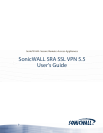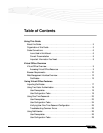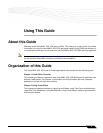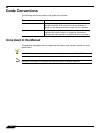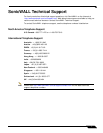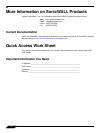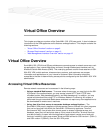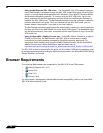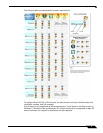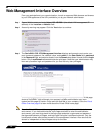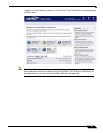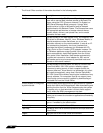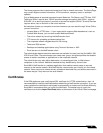
9
SonicWALL SSL VPN 5.5 User Guide
Virtual Office Overview
This chapter provides an overview of the SonicWALL SSL VPN user portal. It also includes an
introduction to the SRA appliance and its features and applications. This chapter contains the
following sections:
• “Virtual Office Overview” section on page 9
• “Browser Requirements” section on page 10
• “Web Management Interface Overview” section on page 12
Virtual Office Overview
SonicWALL SSL VPN Virtual Office provides secure remote access to network resources, such
as applications, files, intranet Web sites, and email through Web access interface such as
Microsoft Outlook Web Access (OWA). The underlying protocol used for these sessions is SSL.
With SSL VPN, mobile workers, telecommuters, partners, and customers can access
information and applications on your intranet or extranet. What information should be
accessible to the user is determined by access policies configured by the SonicWALL SSL VPN
administrator.
Accessing Virtual Office Resources
Remote network resources can be accessed in the following ways:
• Using a standard Web browser - To access network resources, you must log into the SSL
VPN portal. Once authenticated, you may access intranet HTTP and HTTPS sites,
offloaded portals, Web-based applications, and Web-based email. In addition, you may
upload and download files using FTP or Windows Network File Sharing. All access is
performed through a standard Web browser and does not require any client applications to
be downloaded to remote users’ machines.
• Using Java thin-client access to corporate desktops and applications – The
SonicWALL SRA security appliance includes several Java or ActiveX thin-client programs
that can be launched from within the SonicWALL SRA security appliance. Terminal
Services and VNC Java clients allow remote users to access corporate servers and
desktops, open files, edit and store data as if they were at the office. Terminal Services
provides the ability to open individual applications and support remote sound and print
services. In addition, users may access Telnet and SSH servers for SSH version 1 (SSHv1)
and SSH version 2 (SSHv2), from the SSL VPN portal.



